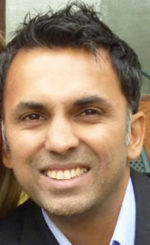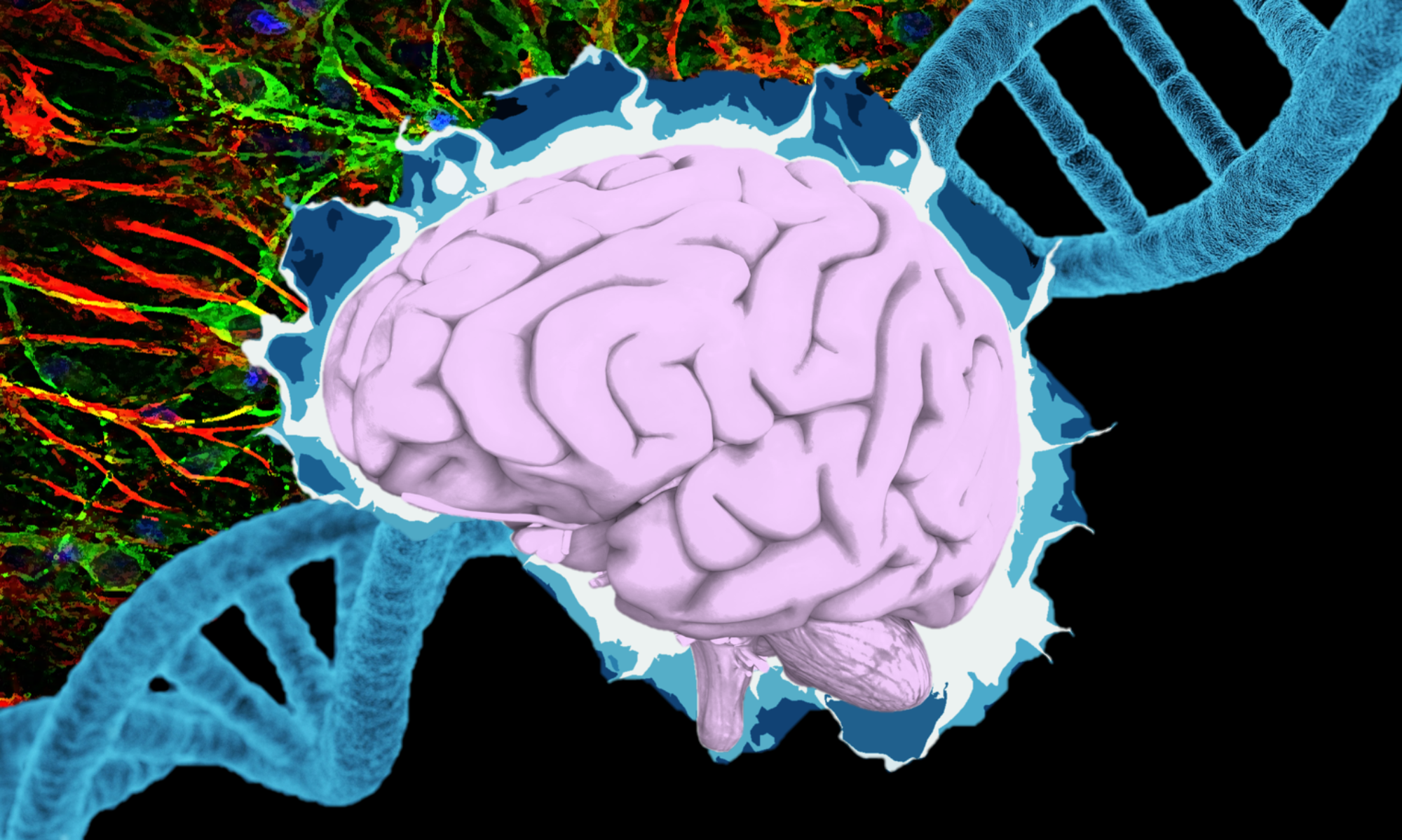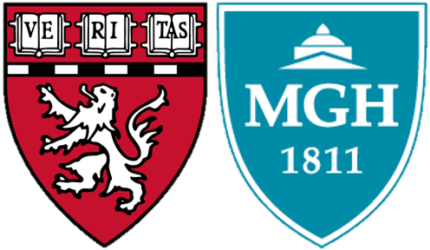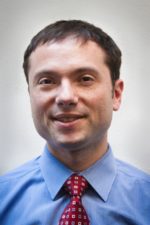Program Directors:
 Randy L. Buckner PhD (core faculty), Professor of Psychology and Neuroscience at HMS, is Co-Director of the MGH Psychiatric Neuroimaging Program and Associate Director of the Martinos Center for Biomedical Imaging. Dr. Buckner is a pioneer in MRI research methods and their application to study normal and abnormal brain function. This work includes the development of event related fMRI analysis, seminal studies of the default network and its relation to Alzheimer’s disease and psychiatric illness, and more recently, advanced computational approaches to estimate cortical, cerebellar, and striatal networks. He has trained numerous postdoctoral fellows, many of whom have received NIH or equivalent career development awards and gone on to secure independent faculty positions. In addition to his role as co-director of the GSP he has numerous collaborations with investigators at the MGH Psychiatry Clinical Research Programs, PNGU, and Stanley Center.
Randy L. Buckner PhD (core faculty), Professor of Psychology and Neuroscience at HMS, is Co-Director of the MGH Psychiatric Neuroimaging Program and Associate Director of the Martinos Center for Biomedical Imaging. Dr. Buckner is a pioneer in MRI research methods and their application to study normal and abnormal brain function. This work includes the development of event related fMRI analysis, seminal studies of the default network and its relation to Alzheimer’s disease and psychiatric illness, and more recently, advanced computational approaches to estimate cortical, cerebellar, and striatal networks. He has trained numerous postdoctoral fellows, many of whom have received NIH or equivalent career development awards and gone on to secure independent faculty positions. In addition to his role as co-director of the GSP he has numerous collaborations with investigators at the MGH Psychiatry Clinical Research Programs, PNGU, and Stanley Center.
Joshua L. Roffman MD, MMSc (core faculty), Associate Professor of Psychiatry at Harvard Medical School (HMS), is Co-Director of the MGH Division of Psychiatric Neuroimaging, Director of Research of the MGH Schizophrenia Clinical and Research Program, and Director of the MGH Brain Genomics Laboratory. Since graduating from the MGH McLean Adult Psychiatry Residency in 2005, he has followed the “T32 to K23 to R01” trajectory to independent investigator status, and is currently completing a BRAINS R01 from NIMH. He has received additional specialized training in translational research through the Harvard Health Sciences and Technology (HST)-MIT Clinical Investigator Training Program and the Career Development Institute for Psychiatry, where he has also served as a faculty member for the last 5 years.
Dr. Roffman’s research merges multi-modal brain imaging, genomics, and clinical trials to develop new interventions for schizophrenia, with an emphasis on folic acid. Along with Drs. Randy Buckner and Jordan Smoller, he co-directs the Harvard-MGH Brain Genomics Superstruct Project (GSP), a repository of MRI, genomic, and neurocognitive data from >4,000 healthy individuals and psychiatric patients. His work relies strongly on collaborations with numerous investigators at the Martinos Center for Biomedical Imaging and MGH Psychiatric and Neurodevelopmenal Genetics Unit (PNGU) where he is an affiliated faculty member.
Faculty:
 Deborah Blacker MD, ScD, Professor of Psychiatry at HMS and Epidemiology at HSPH, is Associate Chief for Research at the MGH Department of Psychiatry, Director of the Gerontology Research Unit, and Deputy Chair of Epidemiology at HSPH. Her highly collaborative work in Alzheimer’s disease spans genetics, epidemiology, and neuroimaging in service of early diagnosis and treatment. In addition to having mentored numerous postdoctoral fellows and K-awardees, she also co-leads an NIMH-sponsored training grant in psychiatric genetics and translational research.
Deborah Blacker MD, ScD, Professor of Psychiatry at HMS and Epidemiology at HSPH, is Associate Chief for Research at the MGH Department of Psychiatry, Director of the Gerontology Research Unit, and Deputy Chair of Epidemiology at HSPH. Her highly collaborative work in Alzheimer’s disease spans genetics, epidemiology, and neuroimaging in service of early diagnosis and treatment. In addition to having mentored numerous postdoctoral fellows and K-awardees, she also co-leads an NIMH-sponsored training grant in psychiatric genetics and translational research.
 Joan A. Camprodon MD, MPH, PhD, Assistant Professor of Psychiatry at HMS, he is the Chief of the Division of Neuropsychiatry and director of the Laboratory for Neuropsychiatry and Neuromodulation and the TMS clinical service. His research uses multimodal combinations of brain stimulation and neuroimaging to investigate neural circuitry and plasticity in a translational manner. His laboratory works with a wide range of noninvasive and invasive neuromodulation techniques including transcranial direct current stimulation (tDCS), transcranial magnetic stimulation (TMS), electroconvulsive therapy (ECT) and deep brain stimulation (DBS) among others. He also uses functional and structural MRI, EEG and innovative simultaneous combinations of TMS and tDCS with neuroimaging. Dr. Camprodon is interested in understanding basic circuit properties of human neural networks and how maladaptive plastic changes lead to neuropsychiatric disorders. Critical efforts are geared towards applying the paradigms and methods of basic human systems neuroscience to develop high-impact clinical tools, identify targets for therapeutic action and design individualized image-guided neuromodulation treatments.
Joan A. Camprodon MD, MPH, PhD, Assistant Professor of Psychiatry at HMS, he is the Chief of the Division of Neuropsychiatry and director of the Laboratory for Neuropsychiatry and Neuromodulation and the TMS clinical service. His research uses multimodal combinations of brain stimulation and neuroimaging to investigate neural circuitry and plasticity in a translational manner. His laboratory works with a wide range of noninvasive and invasive neuromodulation techniques including transcranial direct current stimulation (tDCS), transcranial magnetic stimulation (TMS), electroconvulsive therapy (ECT) and deep brain stimulation (DBS) among others. He also uses functional and structural MRI, EEG and innovative simultaneous combinations of TMS and tDCS with neuroimaging. Dr. Camprodon is interested in understanding basic circuit properties of human neural networks and how maladaptive plastic changes lead to neuropsychiatric disorders. Critical efforts are geared towards applying the paradigms and methods of basic human systems neuroscience to develop high-impact clinical tools, identify targets for therapeutic action and design individualized image-guided neuromodulation treatments.
 Lee Cohen MD, Professor of Psychiatry at HMS, is Director of the MGH Center for Women’s Health. During his >25 years as an investigator he has produced seminal work in both perinatal psychiatry and on psychiatric and endocrine sequelae of menopause. He has also studied biomarkers in women at risk for depressive relapse during pregnancy and infertility treatment. A recipient of the MGH Department of Psychiatry Mentorship Award for Research, he has mentored numerous K-awardees.
Lee Cohen MD, Professor of Psychiatry at HMS, is Director of the MGH Center for Women’s Health. During his >25 years as an investigator he has produced seminal work in both perinatal psychiatry and on psychiatric and endocrine sequelae of menopause. He has also studied biomarkers in women at risk for depressive relapse during pregnancy and infertility treatment. A recipient of the MGH Department of Psychiatry Mentorship Award for Research, he has mentored numerous K-awardees.
 Darin Dougherty MD, Associate Professor of Psychiatry at HMS, directs the Neurotherapeutics Division of the MGH Department of Psychiatry, which is based at the Martinos Center. Dr. Dougherty is a pioneer in psychosurgery and deep brain stimulation for treatment-refractory depression and obsessive compulsive disorder, and is co-PI of a DARPA translational neuroengineering project involving closed loop stimulation. His division also conducts groundbreaking work in non-invasive stimulation methods including transcranial and direct current stimulation, and related brain imaging work. He has mentored numerous residents, postdoctoral fellows, and K-awardees.
Darin Dougherty MD, Associate Professor of Psychiatry at HMS, directs the Neurotherapeutics Division of the MGH Department of Psychiatry, which is based at the Martinos Center. Dr. Dougherty is a pioneer in psychosurgery and deep brain stimulation for treatment-refractory depression and obsessive compulsive disorder, and is co-PI of a DARPA translational neuroengineering project involving closed loop stimulation. His division also conducts groundbreaking work in non-invasive stimulation methods including transcranial and direct current stimulation, and related brain imaging work. He has mentored numerous residents, postdoctoral fellows, and K-awardees.

Kamryn T. Eddy, PhD, is an Associate Professor of psychology at Harvard Medical School and the co-director of the Massachusetts General Hospital Eating Disorders Clinical and Research Program. She is a clinical psychologist with expertise in the assessment and treatment of eating disorders. She is a Fellow of the Academy for Eating Disorders and a member of the Eating Disorders Research Society and her research is supported through the National Institutes of Health and private foundations. Her program of research focuses on diagnosis, treatment, and neurobiological bases of eating disorders, and longitudinal outcomes. She is the principal investigator of several studies, including two NIMH-funded studies of the neurobiology of low weight eating disorders, and a novel hormonal treatment study of anorexia nervosa and the female athlete triad. The overarching objective of her work is to carefully describe the clinical presentations of individuals with eating disorders in order to address questions about why, and in whom these illnesses are most likely to develop, and to inform the development of novel treatments for these serious conditions. She has mentored numerous postdoctoral fellows, medical residents, and psychology graduate students.
 A. Eden Evins MD, MPH, Professor of Psychiatry at HMS, is Director of the MGH Center for Addiction Medicine and Addiction Research Program. She is also an investigator in the MGH Schizophrenia Clinical and Research Program. Dr. Evins’ work focuses on smoking cessation in neuropsychiatric populations, including such novel translational methods as real-time functional MRI and D2/D3 receptor imaging with PET. She has mentored more than 20 postdoctoral trainees, including numerous K-awardees and NARSAD Young Investigator Award recipients.
A. Eden Evins MD, MPH, Professor of Psychiatry at HMS, is Director of the MGH Center for Addiction Medicine and Addiction Research Program. She is also an investigator in the MGH Schizophrenia Clinical and Research Program. Dr. Evins’ work focuses on smoking cessation in neuropsychiatric populations, including such novel translational methods as real-time functional MRI and D2/D3 receptor imaging with PET. She has mentored more than 20 postdoctoral trainees, including numerous K-awardees and NARSAD Young Investigator Award recipients.
 Maurizio Fava MD (core faculty), Professor of Psychiatry at HMS, is Executive Vice Chair for the MGH Department of Psychiatry, Director of the Division of Clinical Research at the MGH Research Institute, and the founder and Executive Director of the Clinical Trials Network and Institute (CTNI). He is an international leader in depression research, having served as co-PI for STAR*D (the largest study of depression ever conducted) and has worked in numerous areas including novel pharmacotherapies, neurophysiology, neuroendocrinology, neuroimaging, and genetics. He has been awarded more than $60 million in research grants over the last 25 years and has an h index >100. Dr. Fava has mentored more than 50 fellows, many of whom have gone on to take leadership roles in depression research, and 30 of whom have received awards from NARSAD, APA, and K-level awards from NIH.
Maurizio Fava MD (core faculty), Professor of Psychiatry at HMS, is Executive Vice Chair for the MGH Department of Psychiatry, Director of the Division of Clinical Research at the MGH Research Institute, and the founder and Executive Director of the Clinical Trials Network and Institute (CTNI). He is an international leader in depression research, having served as co-PI for STAR*D (the largest study of depression ever conducted) and has worked in numerous areas including novel pharmacotherapies, neurophysiology, neuroendocrinology, neuroimaging, and genetics. He has been awarded more than $60 million in research grants over the last 25 years and has an h index >100. Dr. Fava has mentored more than 50 fellows, many of whom have gone on to take leadership roles in depression research, and 30 of whom have received awards from NARSAD, APA, and K-level awards from NIH.
 Guoping Feng PhD, Professor of Brain and Cognitive Sciences at the McGovern Institute of MIT, is Director of the Model Systems and Neurobiology unit at the Stanley Center. Dr. Feng studies the development and function of synapses, and their disruption in brain disorders, using animal models and novel genetic tools that assess synaptic function in vivo. A recipient of the McKnight Technological Innovations in Neuroscience Award, he has mentored numerous research fellows.
Guoping Feng PhD, Professor of Brain and Cognitive Sciences at the McGovern Institute of MIT, is Director of the Model Systems and Neurobiology unit at the Stanley Center. Dr. Feng studies the development and function of synapses, and their disruption in brain disorders, using animal models and novel genetic tools that assess synaptic function in vivo. A recipient of the McKnight Technological Innovations in Neuroscience Award, he has mentored numerous research fellows.
 Marlene Freeman MD, Associate Professor of Psychiatry at HMS, is an investigator in the MGH Center for Women’s Health, where she is Associate Director. She is also Medical Director for the MGH Clinical Trials Network and Institute (CTNI). Her research focuses on mood disorders in the peripartum and perimenopausal periods, including the development of complementary medicine interventions and assessment of stress-related biological markers. She has mentored numerous early career psychiatrists and psychologists.
Marlene Freeman MD, Associate Professor of Psychiatry at HMS, is an investigator in the MGH Center for Women’s Health, where she is Associate Director. She is also Medical Director for the MGH Clinical Trials Network and Institute (CTNI). Her research focuses on mood disorders in the peripartum and perimenopausal periods, including the development of complementary medicine interventions and assessment of stress-related biological markers. She has mentored numerous early career psychiatrists and psychologists.
 Randy Gollub MD, PhD, Professor of Psychiatry at HMS, is based at the Martinos Center, where she serves as Associate Director for Translational Research in the MGH Psychiatric Neuroimaging Program. She has worked extensively in fMRI studies of schizophrenia and pain perception, and has developed novel methods in bioinformatics that have enabled large-scale research studies of clinical MRI scans. She has trained numerous postdoctoral fellows and co-directs a predoctoral fellowship in translational imaging at the Harvard MIT Division of Health Sciences and Technology.
Randy Gollub MD, PhD, Professor of Psychiatry at HMS, is based at the Martinos Center, where she serves as Associate Director for Translational Research in the MGH Psychiatric Neuroimaging Program. She has worked extensively in fMRI studies of schizophrenia and pain perception, and has developed novel methods in bioinformatics that have enabled large-scale research studies of clinical MRI scans. She has trained numerous postdoctoral fellows and co-directs a predoctoral fellowship in translational imaging at the Harvard MIT Division of Health Sciences and Technology.
 Stephen Haggarty PhD, Associate Professor of Neurology at HMS, studies the molecular-, cellular and circuit-level mechanisms of neuroplasticity. Based at the MGH Psychiatric and Neurodevelopmental Genetics Unit, Dr. Haggarty uses induced pluripotent stem cell modes and high throughput chemical, RNAi, and cDNA screening to identify new targets for interventions in neuropsychiatric disorders. He has mentored numerous postdoctoral fellows, many of whom are now faculty members.
Stephen Haggarty PhD, Associate Professor of Neurology at HMS, studies the molecular-, cellular and circuit-level mechanisms of neuroplasticity. Based at the MGH Psychiatric and Neurodevelopmental Genetics Unit, Dr. Haggarty uses induced pluripotent stem cell modes and high throughput chemical, RNAi, and cDNA screening to identify new targets for interventions in neuropsychiatric disorders. He has mentored numerous postdoctoral fellows, many of whom are now faculty members.
 Daphne Holt MD, PhD, Associate Professor of Psychiatry at HMS, is co-director of the MGH Schizophrenia Clinical and Research Program and an investigator in the MGH Psychiatry Neuroimaging Program. Dr. Holt’s research at the Martinos Center focuses on fMRI studies of social cognition and emotion dysregulation in schizophrenia as well as in first episode psychosis. She has mentored numerous postdoctoral fellows including longitudinal supervision of MGH-McLean adult psychiatry residents during and after their clinical training.
Daphne Holt MD, PhD, Associate Professor of Psychiatry at HMS, is co-director of the MGH Schizophrenia Clinical and Research Program and an investigator in the MGH Psychiatry Neuroimaging Program. Dr. Holt’s research at the Martinos Center focuses on fMRI studies of social cognition and emotion dysregulation in schizophrenia as well as in first episode psychosis. She has mentored numerous postdoctoral fellows including longitudinal supervision of MGH-McLean adult psychiatry residents during and after their clinical training.
Rakesh Karmacharya MD, PhD
 , Assistant Professor of Psychiatry at HMS, is the Director for Stem Cell Research in the MGH Center for Experimental Drugs and Diagnostics and Associate member in the Chemical Biology Program at the Broad Institute. His laboratory uses scientific approaches at the intersection of chemical biology and stem cell biology in order to investigate cellular pathways relevant to psychiatric disorders. A major project involves the identification of cellular disease signatures for schizophrenia and bipolar disorder in patient-derived neurons from induced pluripotent stem cells (iPSCs), with a focus on studying synaptic and dendritic spine biology in specific cortical neuron subtypes using super-resolution microscopy and high-resolution calcium imaging studies. These experiments are coupled with phosphoproteomic, metabolomic and gene-expression studies to delineate the nature of cellular process that are aberrant in disease. His laboratory is interested in leveraging cellular disease signatures to screen for small molecules that can serve as leads for novel therapeutics.
, Assistant Professor of Psychiatry at HMS, is the Director for Stem Cell Research in the MGH Center for Experimental Drugs and Diagnostics and Associate member in the Chemical Biology Program at the Broad Institute. His laboratory uses scientific approaches at the intersection of chemical biology and stem cell biology in order to investigate cellular pathways relevant to psychiatric disorders. A major project involves the identification of cellular disease signatures for schizophrenia and bipolar disorder in patient-derived neurons from induced pluripotent stem cells (iPSCs), with a focus on studying synaptic and dendritic spine biology in specific cortical neuron subtypes using super-resolution microscopy and high-resolution calcium imaging studies. These experiments are coupled with phosphoproteomic, metabolomic and gene-expression studies to delineate the nature of cellular process that are aberrant in disease. His laboratory is interested in leveraging cellular disease signatures to screen for small molecules that can serve as leads for novel therapeutics.
 John Kelly PhD, Associate Professor of Psychiatry at HMS, is Director of the Addiction Recovery Management Service at MGH and an investigator in the MGH Center for Addiction Medicine and Addiction Research Program. A clinical psychologist, his research focuses on interventions for adolescents with substance abuse disorders and combating stigma among mental health professionals. He is the recipient of a K24 award from NIAAA and has mentored more than 20 psychology trainees.
John Kelly PhD, Associate Professor of Psychiatry at HMS, is Director of the Addiction Recovery Management Service at MGH and an investigator in the MGH Center for Addiction Medicine and Addiction Research Program. A clinical psychologist, his research focuses on interventions for adolescents with substance abuse disorders and combating stigma among mental health professionals. He is the recipient of a K24 award from NIAAA and has mentored more than 20 psychology trainees.
 Karestan Koenen PhD (core faculty), Professor of Psychiatric Epidemiology at the Harvard T.H. Chan School of Public Health (HSPH), is a psychologist and epidemiologist with expertise in post traumatic stress disorder. An investigator in the Stanley Center and Associate Member of the Broad Institute, Dr. Koenen has conducted large, multisite investigations of gene-environment interactions in psychiatric disorders in the US and internationally. She is also an experienced mentor, having supervised numerous postdoctoral fellows and mentored many K awards, and currently directs a T32 program in psychiatric genetics and translational research at HSPH.
Karestan Koenen PhD (core faculty), Professor of Psychiatric Epidemiology at the Harvard T.H. Chan School of Public Health (HSPH), is a psychologist and epidemiologist with expertise in post traumatic stress disorder. An investigator in the Stanley Center and Associate Member of the Broad Institute, Dr. Koenen has conducted large, multisite investigations of gene-environment interactions in psychiatric disorders in the US and internationally. She is also an experienced mentor, having supervised numerous postdoctoral fellows and mentored many K awards, and currently directs a T32 program in psychiatric genetics and translational research at HSPH.
 Dara Manoach PhD, Professor of Psychiatry at HMS, is a neuropsychologist and investigator in the MGH Schizophrenia Clinical and Research Program. Based at the Martinos Center, Dr. Manoach has used multimodal imaging (fMRI, MEG) to study aspects of executive dysfunction in schizophrenia, autism, and obsessive compulsive disorder. Other recent translational work has focused on disrupted sleep architecture and development of related pharmacologic interventions for cognitive deficits. She holds a K24 award from NIMH to support mentoring trainees in research on cognitive impairment in schizophrenia.
Dara Manoach PhD, Professor of Psychiatry at HMS, is a neuropsychologist and investigator in the MGH Schizophrenia Clinical and Research Program. Based at the Martinos Center, Dr. Manoach has used multimodal imaging (fMRI, MEG) to study aspects of executive dysfunction in schizophrenia, autism, and obsessive compulsive disorder. Other recent translational work has focused on disrupted sleep architecture and development of related pharmacologic interventions for cognitive deficits. She holds a K24 award from NIMH to support mentoring trainees in research on cognitive impairment in schizophrenia.
 Steve McCarroll PhD, Associate Professor of Genetics at HMS, is Director of Genetics at the Stanley Center. Dr. McCarroll’s lab develops molecular and computational methods for high-throughput sequencing, and applies these technologies to understand the genetic architecture of neuropsychiatric disorders. His notable recent work has focused on complement C4 abnormalities in schizophrenia, bridging GWAS data with synaptic physiology. He has mentored numerous postdoctoral fellows, including clinical trainees, and many graduate students.
Steve McCarroll PhD, Associate Professor of Genetics at HMS, is Director of Genetics at the Stanley Center. Dr. McCarroll’s lab develops molecular and computational methods for high-throughput sequencing, and applies these technologies to understand the genetic architecture of neuropsychiatric disorders. His notable recent work has focused on complement C4 abnormalities in schizophrenia, bridging GWAS data with synaptic physiology. He has mentored numerous postdoctoral fellows, including clinical trainees, and many graduate students.
 David Mischoulon MD, PhD, Associate Professor of Psychiatry at HMS, is Director of Research at the MGH Depression Clinical and Research Program. His research focuses primarily on development of complementary and alternative medicine interventions for depression, and he is an international expert in the use of omega-3 fatty acids in mood disorders. He has mentored many early career investigators who subsequently received K- or R-level funding from NIH.
David Mischoulon MD, PhD, Associate Professor of Psychiatry at HMS, is Director of Research at the MGH Depression Clinical and Research Program. His research focuses primarily on development of complementary and alternative medicine interventions for depression, and he is an international expert in the use of omega-3 fatty acids in mood disorders. He has mentored many early career investigators who subsequently received K- or R-level funding from NIH.
 Benjamin Neale PhD, Assistant Professor of Medicine at HMS, a psychiatric geneticist, is an Associate Member of the Broad Institute of Harvard and MIT. His work focuses on development and application of methods in statistical genetics, and he has played key roles in large-scale collaborative efforts to study the genetics of ADHD, autism, schizophrenia, Tourette’s syndrome, and obsessive compulsive disorder. He is PI on a P50 grant on the genetics of complex traits, and an R01 on linking GWAS peaks to function in psychiatric disease. Dr. Neale has taught genetics in a variety of settings including the International Workshop on Statistical Genetic Methods for Human Complex Traits (which he directs) at Rockefeller University, and currently mentors numerous postdoctoral fellows.
Benjamin Neale PhD, Assistant Professor of Medicine at HMS, a psychiatric geneticist, is an Associate Member of the Broad Institute of Harvard and MIT. His work focuses on development and application of methods in statistical genetics, and he has played key roles in large-scale collaborative efforts to study the genetics of ADHD, autism, schizophrenia, Tourette’s syndrome, and obsessive compulsive disorder. He is PI on a P50 grant on the genetics of complex traits, and an R01 on linking GWAS peaks to function in psychiatric disease. Dr. Neale has taught genetics in a variety of settings including the International Workshop on Statistical Genetic Methods for Human Complex Traits (which he directs) at Rockefeller University, and currently mentors numerous postdoctoral fellows.
 Andrew Nierenberg MD, Professor of Psychiatry at HMS and holds the Thomas P. Hackett MD Endowed Chair in Psychiatry at MGH, is Director of the Dauten Family Center for Bipolar Treatment Innovation. His work spans clinical trials and biomarker development, including translational work in mitochondrial energy metabolism. He is principal investigator of Patient Centered Outcomes Research Institute (PCORI) contracts to form a virtual network of people with mood disorders, study exercise, and mindfulness. Dr. Nierenberg has mentored 25 postdoctoral fellows who collectively have received 15 NIH K-level awards, many en route to faculty appointments ranging from Instructor to Full Professor.
Andrew Nierenberg MD, Professor of Psychiatry at HMS and holds the Thomas P. Hackett MD Endowed Chair in Psychiatry at MGH, is Director of the Dauten Family Center for Bipolar Treatment Innovation. His work spans clinical trials and biomarker development, including translational work in mitochondrial energy metabolism. He is principal investigator of Patient Centered Outcomes Research Institute (PCORI) contracts to form a virtual network of people with mood disorders, study exercise, and mindfulness. Dr. Nierenberg has mentored 25 postdoctoral fellows who collectively have received 15 NIH K-level awards, many en route to faculty appointments ranging from Instructor to Full Professor.
 Roy Perlis MD, MSc, Professor of Psychiatry at HMS, is Director of the MGH Psychiatry Center for Experimental Drugs and Diagnostics and the MGH Electronic Health Record Research Unit. An investigator in the MGH Psychiatric and Neurodevelopmental Genetics Unit, he also serves as Director of Clinical Applications at the Stanley Center of the Broad Institute. His work merges pharmacogenomics, cellular models, and bioinformatics to develop tractable, personalized markers of treatment outcome in mood and other disorders. He has received numerous awards for his teaching and mentorship of residents and fellows in the MGH Department of Psychiatry.
Roy Perlis MD, MSc, Professor of Psychiatry at HMS, is Director of the MGH Psychiatry Center for Experimental Drugs and Diagnostics and the MGH Electronic Health Record Research Unit. An investigator in the MGH Psychiatric and Neurodevelopmental Genetics Unit, he also serves as Director of Clinical Applications at the Stanley Center of the Broad Institute. His work merges pharmacogenomics, cellular models, and bioinformatics to develop tractable, personalized markers of treatment outcome in mood and other disorders. He has received numerous awards for his teaching and mentorship of residents and fellows in the MGH Department of Psychiatry.
 Elise Robinson PhD, Assistant Professor of Epidemiology at HSPS, is an investigator at the Stanley Center. A geneticist and epidemiologist, she has published high profile work in the genetics of social communication, as well as genetic overlap between autism and other neuropsychiatric disorders. She also led the first genetic analysis of the Philadelphia Neurodevelopmental Cohort data, exploring the genetic architecture of cognitive ability.
Elise Robinson PhD, Assistant Professor of Epidemiology at HSPS, is an investigator at the Stanley Center. A geneticist and epidemiologist, she has published high profile work in the genetics of social communication, as well as genetic overlap between autism and other neuropsychiatric disorders. She also led the first genetic analysis of the Philadelphia Neurodevelopmental Cohort data, exploring the genetic architecture of cognitive ability.
 Jack Rogers PhD, Associate Professor of Neuroscience at HMS, is a Martinos Center-based biochemist who studies effects of iron homeostasis and environmental toxins on risk for neurodegenerative disorders such as Parkinson’s disease and Alzheimer’s disease, in conjunction with colleagues at the Broad Institute. He has mentored numerous undergraduate, graduate, and medical students seeking to train in translational neuroscience.
Jack Rogers PhD, Associate Professor of Neuroscience at HMS, is a Martinos Center-based biochemist who studies effects of iron homeostasis and environmental toxins on risk for neurodegenerative disorders such as Parkinson’s disease and Alzheimer’s disease, in conjunction with colleagues at the Broad Institute. He has mentored numerous undergraduate, graduate, and medical students seeking to train in translational neuroscience.
 Amar Sahay PhD, Associate Professor of Psychiatry at Harvard Medical School and Director of the Laboratory on Brain Plasticity and Function at the Center for Regenerative Medicine at Massachusetts General Hospital. He is principal faculty of the Harvard Stem Cell Institute of Harvard University and an Associate member of the BROAD Institute of Harvard and MIT. The major focus of Dr. Sahay’s laboratory is investigating how neural circuit mechanisms and adult hippocampal neurogenesis may be harnessed to improve hippocampal functions in memory and regulation of mood in adulthood and aging. Towards this goal, the Sahay lab employs inducible mouse- and viral-genetics, pharmaco- and optogenetics, in vivo optical imaging and 2 photon imaging, behavioral analysis and human cellular reprogramming. Dr. Sahay is the recipient of numerous awards including NIH R00 Pathway to Independence award, NIMH-BRAINS R01, NIMH R01 and NIA RO1 awards, NARSAD Young Investigator and Independent Investigator awards and career development awards from the Society for Neuroscience and the American College of Neuropsychopharmacology. Dr. Sahay is committed to mentoring and his trainees have been awarded NARSAD Young Investigator grants (postdoctoral fellows), HHMI Gilliam Fellowships (Harvard Neuroscience Program Graduate students) and Harvard’s Hoopes prize (Harvard undergraduate honors thesis). Recent studies of the Sahay lab were published in Neuron, Nature Communications and Nature Medicine.
Amar Sahay PhD, Associate Professor of Psychiatry at Harvard Medical School and Director of the Laboratory on Brain Plasticity and Function at the Center for Regenerative Medicine at Massachusetts General Hospital. He is principal faculty of the Harvard Stem Cell Institute of Harvard University and an Associate member of the BROAD Institute of Harvard and MIT. The major focus of Dr. Sahay’s laboratory is investigating how neural circuit mechanisms and adult hippocampal neurogenesis may be harnessed to improve hippocampal functions in memory and regulation of mood in adulthood and aging. Towards this goal, the Sahay lab employs inducible mouse- and viral-genetics, pharmaco- and optogenetics, in vivo optical imaging and 2 photon imaging, behavioral analysis and human cellular reprogramming. Dr. Sahay is the recipient of numerous awards including NIH R00 Pathway to Independence award, NIMH-BRAINS R01, NIMH R01 and NIA RO1 awards, NARSAD Young Investigator and Independent Investigator awards and career development awards from the Society for Neuroscience and the American College of Neuropsychopharmacology. Dr. Sahay is committed to mentoring and his trainees have been awarded NARSAD Young Investigator grants (postdoctoral fellows), HHMI Gilliam Fellowships (Harvard Neuroscience Program Graduate students) and Harvard’s Hoopes prize (Harvard undergraduate honors thesis). Recent studies of the Sahay lab were published in Neuron, Nature Communications and Nature Medicine.
 Jordan Smoller MD, ScD (core faculty), Professor of Psychiatry at HMS, is Director of the MGH Psychiatric and Neurodevelopmental Genetics Unit, a multidisciplinary program in translational genetics. He has played leading roles in the Psychiatric Genomics Consortium, the Brain Genomics Superstruct Project, and numerous other multi-site collaborations. He also is a leader of the Partners Biobank and the New England Precision Medicine Consortium, which contain hundreds of thousands of biological specimens linked to the electronic medical record. He holds a K24 award that provides protected time to mentor trainees in genetics and psychiatric neuroscience, and has formally supervised 46 pre- and postdoctoral fellows and numerous K-awardees, many of whom have gone on to independent faculty positions.
Jordan Smoller MD, ScD (core faculty), Professor of Psychiatry at HMS, is Director of the MGH Psychiatric and Neurodevelopmental Genetics Unit, a multidisciplinary program in translational genetics. He has played leading roles in the Psychiatric Genomics Consortium, the Brain Genomics Superstruct Project, and numerous other multi-site collaborations. He also is a leader of the Partners Biobank and the New England Precision Medicine Consortium, which contain hundreds of thousands of biological specimens linked to the electronic medical record. He holds a K24 award that provides protected time to mentor trainees in genetics and psychiatric neuroscience, and has formally supervised 46 pre- and postdoctoral fellows and numerous K-awardees, many of whom have gone on to independent faculty positions.
 Roger Tootell PhD, Associate Professor in Radiology at HMS, and Assistant Biologist at MGH. He uses MRI and other techniques to study the functional organization of primate visual cortex. During the past decade he has concentrated on studies of retinotopic organization, visual motion sensitivity, the processing of visual objects, and cognitive functions influenced by visual information.
Roger Tootell PhD, Associate Professor in Radiology at HMS, and Assistant Biologist at MGH. He uses MRI and other techniques to study the functional organization of primate visual cortex. During the past decade he has concentrated on studies of retinotopic organization, visual motion sensitivity, the processing of visual objects, and cognitive functions influenced by visual information.
 Tim Wilens MD, Associate Professor of Psychiatry at HMS, is a child/adolescent, adult and addiction psychiatrist. He serves as chief of the Division of Child and Adolescent Psychiatry at MGH. An expert in comorbidity of ADHD and substance use disorders, he has conducted numerous clinical trials as well as studies of how executive dysfunction contributes to substance abuse. Dr. Wilens holds a K24 award from NIDA to support mentees studying etiology of stimulant misuse in college students.
Tim Wilens MD, Associate Professor of Psychiatry at HMS, is a child/adolescent, adult and addiction psychiatrist. He serves as chief of the Division of Child and Adolescent Psychiatry at MGH. An expert in comorbidity of ADHD and substance use disorders, he has conducted numerous clinical trials as well as studies of how executive dysfunction contributes to substance abuse. Dr. Wilens holds a K24 award from NIDA to support mentees studying etiology of stimulant misuse in college students.
 Sabine Wilhelm PhD, Professor of Psychology at HMS, is Chief of Psychology and Director of the OCD and Related Disorders program at MGH. Her research focuses on neurocognitive features, neuroimaging, and intervention development of obsessive compulsive-spectrum disorders. She has mentored numerous K awardees who have gone on to achieve successful independent research careers at the Assistant, Associate, and Full Professor levels.
Sabine Wilhelm PhD, Professor of Psychology at HMS, is Chief of Psychology and Director of the OCD and Related Disorders program at MGH. Her research focuses on neurocognitive features, neuroimaging, and intervention development of obsessive compulsive-spectrum disorders. She has mentored numerous K awardees who have gone on to achieve successful independent research careers at the Assistant, Associate, and Full Professor levels.


